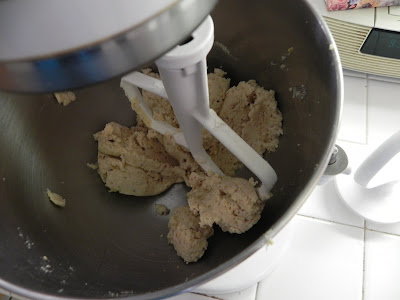In English you call nuns "Sister" and priests "Father", but in French it's "my sister" and "my father": ma sœur, mon père. Is it capitalized? I have no idea. "Merci, ma sœur!" the Adorers would say to thank each other.
The French for "Mister" is Monsieur.
Go here and click on listen to see how much it sounds like the sisters are calling each other "Mister".
Then there's "je veux bien", which means you would like whatever's been suggested, or you very appreciatively accept an invitation. And "je vais bien", which means, "I'm fine."
They sound a lot alike too. So suppose a cute French guy asks you out to dinner and you try to say, "I'd love that--
je veux bien!" but he hears, "I'm fine," as in, "I don't need your silly invitation; I'm fine without it!"
Thank goodness I needn't worry about that.
I understand that the priests of the Institute of Christ the King used to be addressed as "Monsieur l'Abbé" (which is just what Sir Percy called Chauvelin when the latter was disguised as a priest, but Sir Percy wasn't actually fooled), but since the Institute was elevated to the status of pontifical right about a year ago they're addressed as Monsieur Chanoine. Or is it Monsieur le Chanoine? At any rate, I have the impression that in the American parishes they're mostly still addressed as Father Smith (or whatever), not Canon Smith. Except in writing. The seminarians are "Monsieur l'Abbé", at least once they get their cassocks after the first year. I could be wrong about some of this, but it doesn't matter because I plan to waste no opportunity to keep my mouth shut. :)
I'm told that in French, "Amen" is a Novus Ordo thing to say. The traditional phrase is "Ainsi soit-il", "So be it". Sermons are likely to begin with the invocation of the Trinity, "Au nom du Père, et du Fils et du Saint-Esprit, Ainsi soit-il", followed by "Mes bien chers frères..."
Also, "Rosary" traditionally means all three sets of mysteries, so if you're only planning on praying five decades you'd say "Chapelet".
Oh, and I hear that the familar "tu" form of address is not used in religious life, which is great-- saves me having to learn it. I can just call everyone "vous". The verbs are all different depending on which one you're using, so it's no small thing to have to switch back and forth. Anyway, how awkward if you can't speak to anybody without specifying whether you consider him a close friend!
My cousin and I used to sing Sandi Patti's "
Love in Any Language" at the top of our lungs together. The very first words in the song are "Je t'aime", which makes it easy for me to remember that phrase now. (Oh my goodness, I just listened to the
30-second sample and it took me right back to summers spent camping with the cousins, and Allie and I scrambling to get next to each other in the motorhome whenever that song came on. I was maybe nine years old. It's really something to think that God knew my future. I wonder what He knows now....)
My sister taught me bits of French when we visited Canada one summer. It was years ago, but I remember she would ask, "Quelle heure est-il?" and I'd reply, "Je ne sais pas." So I remember those phrases very well too. :)
Final Fun French Fact: I mainly wrote this post to procrastinate learning more French. :)






































